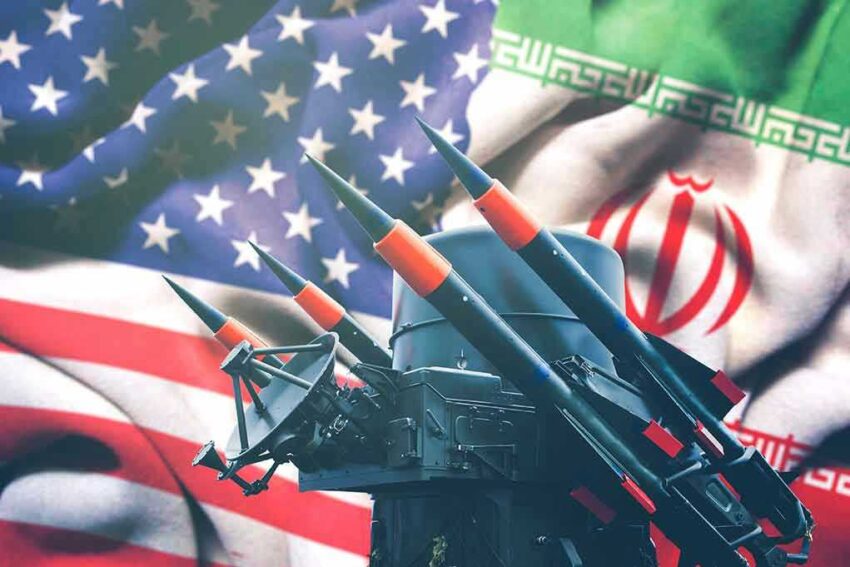The Iranian regime has now escalated its war of words into a full-blown international threat, issuing religious death edicts against former President Donald Trump while a prominent watchdog demands U.S. sanctions—yet Washington’s response remains a masterclass in dithering.
At a Glance
- Senior Iranian clerics have publicly issued fatwas calling for the death of Donald Trump and Israeli Prime Minister Netanyahu, invoking “waging war against God.”
- These fatwas are not whispers in the wind—they are amplified by Iran’s top religious institutions and state media.
- United Against Nuclear Iran (UANI) has demanded immediate U.S. sanctions on the implicated clerics and regime entities.
- The precedent of the Salman Rushdie fatwa and the 2022 attack casts a dangerous shadow over the current threats.
Iran’s Fatwa Playbook: When Religious Edicts Become State-Sanctioned Death Threats
Iranian clerics have moved beyond the usual anti-American sloganeering. In the wake of the recent Iran-Israel war, senior figures like Ayatollah Naser Makarem-Shirazi and Ayatollah Hossein Nouri Hamedani issued fatwas explicitly calling for the execution of Donald Trump and Benjamin Netanyahu. The clerics invoked the charge of mohareb—“waging war against God”—a chilling label in Iran’s penal code that justifies torture and execution for enemies of the regime. These are not just idle mutterings from the pulpit. The Qom Seminary, Iran’s premier religious institution, and the regime’s state broadcaster, IRIB, have enthusiastically endorsed these fatwas, with IRIB even airing programs asking viewers to contribute bounties for Trump’s death. If this feels like déjà vu, it should: the infamous 1989 Salman Rushdie fatwa led to decades of violence and a near-fatal stabbing in 2022, and now the same playbook is being dusted off for political leaders who dare to criticize Tehran’s ruling mullahs.
This is not just about rhetoric. When Iran’s top religious and political authorities publicly sanction murder, it is a state-backed incitement to terrorism. History has shown these fatwas have teeth, inspiring attacks both by regime proxies and lone-wolf sympathizers worldwide. The regime’s support for terrorism is long documented, and these new edicts are a direct escalation in Tehran’s pattern of exporting religious violence under the guise of “defending Islam.”
Watchdog Group Calls Out the Obvious—And Demands Consequences
United Against Nuclear Iran (UANI), a U.S. watchdog group known for exposing Tehran’s ties to terrorism, has called for the U.S. government to impose immediate sanctions on every cleric and institution involved in issuing or promoting these death fatwas. UANI’s July 4, 2025 report pulls no punches, arguing these are not theoretical threats but actionable incitements that demand a legal and diplomatic response. The group demands sanctions not just on the senior clerics but on state organs like IRIB and the Qom Seminary that amplify these calls for blood. Jeb Bush and Mark Wallace, UANI’s leadership, draw direct parallels to the Rushdie affair, warning that failure to act only emboldens Tehran’s theocrats and puts American leaders in real danger.
The call for sanctions lands amid an already fraught U.S.-Iran relationship, with nuclear negotiations in shambles and diplomatic channels colder than a Chicago January. Yet, despite these clear-cut threats, the Biden administration’s response has been as tepid as ever—more strongly worded statements, a few sanctions on minor officials, and a lot of hand-wringing about not provoking Iran further. One would think that issuing bounties on a former U.S. president would merit more than the diplomatic equivalent of a sternly worded email.
From Fatwas to Fallout: What This Means for Americans and Our Allies
These fatwas are not just Iran’s internal business. They represent a dangerous escalation in the use of religious decrees as tools of international intimidation. The precedent is crystal clear: the Rushdie fatwa resulted in real-world violence decades later, and the regime is banking on the same outcome for Trump and other Western leaders. UANI warns that these edicts could inspire attacks not just by Iranian proxies but by lone-wolf actors radicalized by Tehran’s propaganda. American and Israeli officials—current and former—are now high-value targets. This is not a drill; this is a direct threat to U.S. national security and the international order.
Sanctioning the clerics and institutions responsible is more than symbolic. It means travel bans, asset freezes, and real consequences for Iran’s clerical mafia. It also sends a message that the U.S. will not tolerate state-sponsored incitement to murder its leaders. If Washington fails to act, it risks emboldening not just Tehran but every other regime that thinks religious rhetoric is a free pass for terrorism. The knock-on effects are also felt by the Iranian diaspora and regime-linked religious institutions abroad, which now face increased scrutiny and the potential for legal action. Meanwhile, Iran’s hardliners will no doubt try to spin any U.S. action as foreign meddling, but that is a tired script at this point.
Click this link for the original source of this article.
Author: Editor
This content is courtesy of, and owned and copyrighted by, https://www.rightwing.org and its author. This content is made available by use of the public RSS feed offered by the host site and is used for educational purposes only. If you are the author or represent the host site and would like this content removed now and in the future, please contact USSANews.com using the email address in the Contact page found in the website menu.







